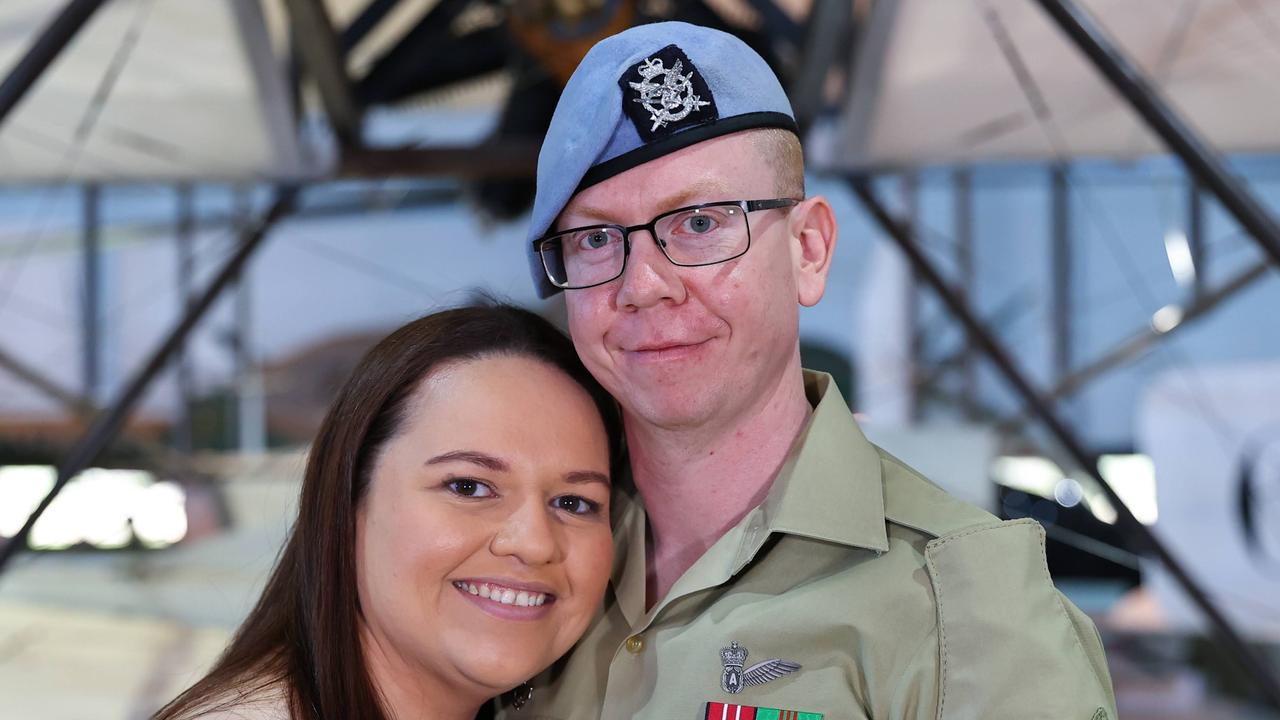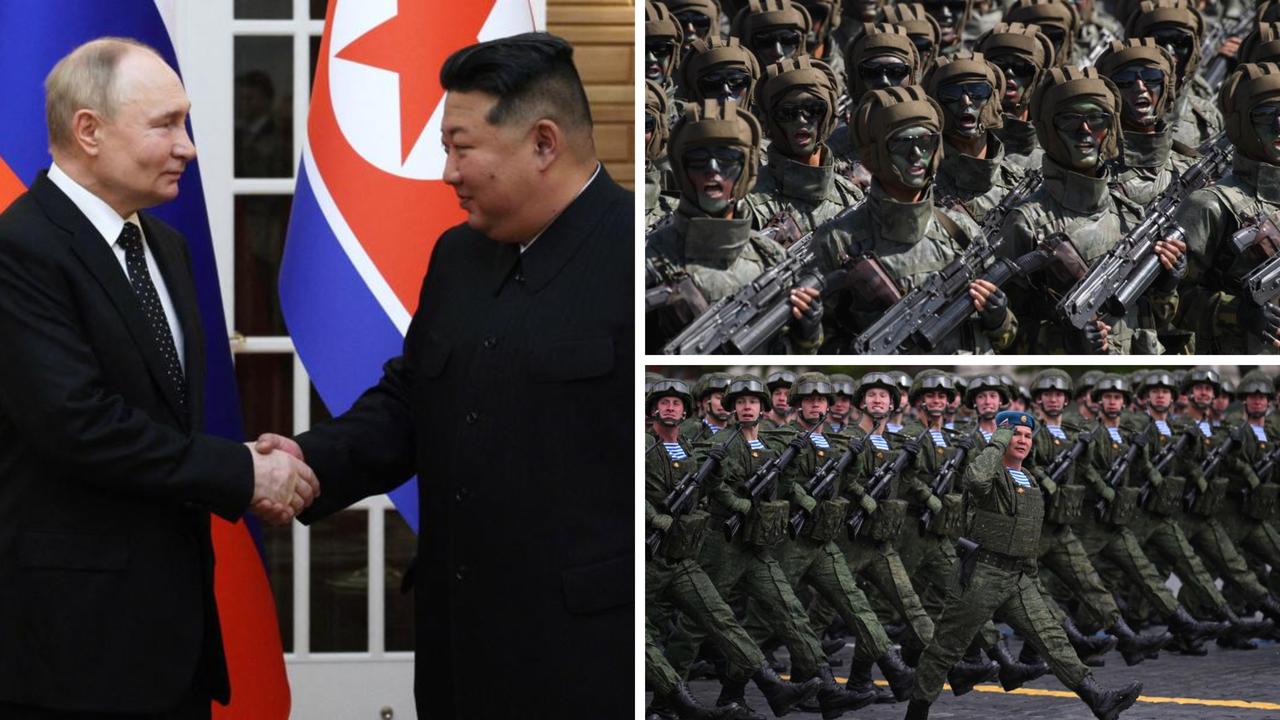Terminator tanks with ‘invisibility’ cloaking will fight future wars
IT seems wildly far-fetched, like something out of a futuristic war epic. But we don’t have to wait for America’s new “Terminator”.
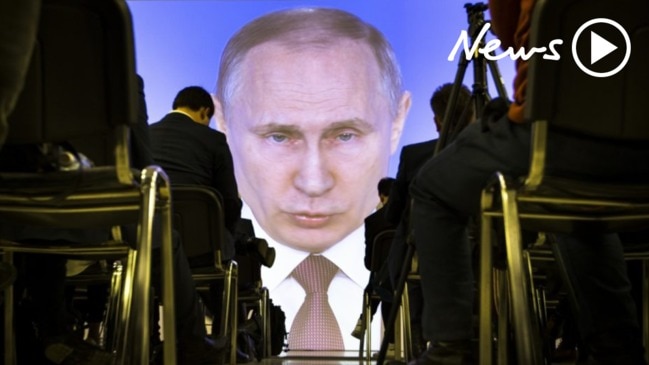
IMAGINE if the US military could send combat vehicles like tanks into battle with enemies — but without a single soldier on the battlefield?
And what if these heavily armed and armoured smart vehicles were essentially invisible to the enemy and fired weapons powerful enough to destroy aircraft, tanks and even cities?
Sounds wildly far-fetched — robot tanks conducting battles, invisible to the enemy, with armour that reacts to incoming fire, driven remotely by soldiers safely within bases on home soil.
But this is not the stuff of the future — it is the innovation of now. The US Army aims to have a Robotic Combat Vehicle demonstrator ready by 2021.
Similar to how drones are operated above war zones while flown by pilots more than an ocean away, smart heavily armed and armoured vehicles could similarly execute the instructions of soldiers safely within the walls of a base.
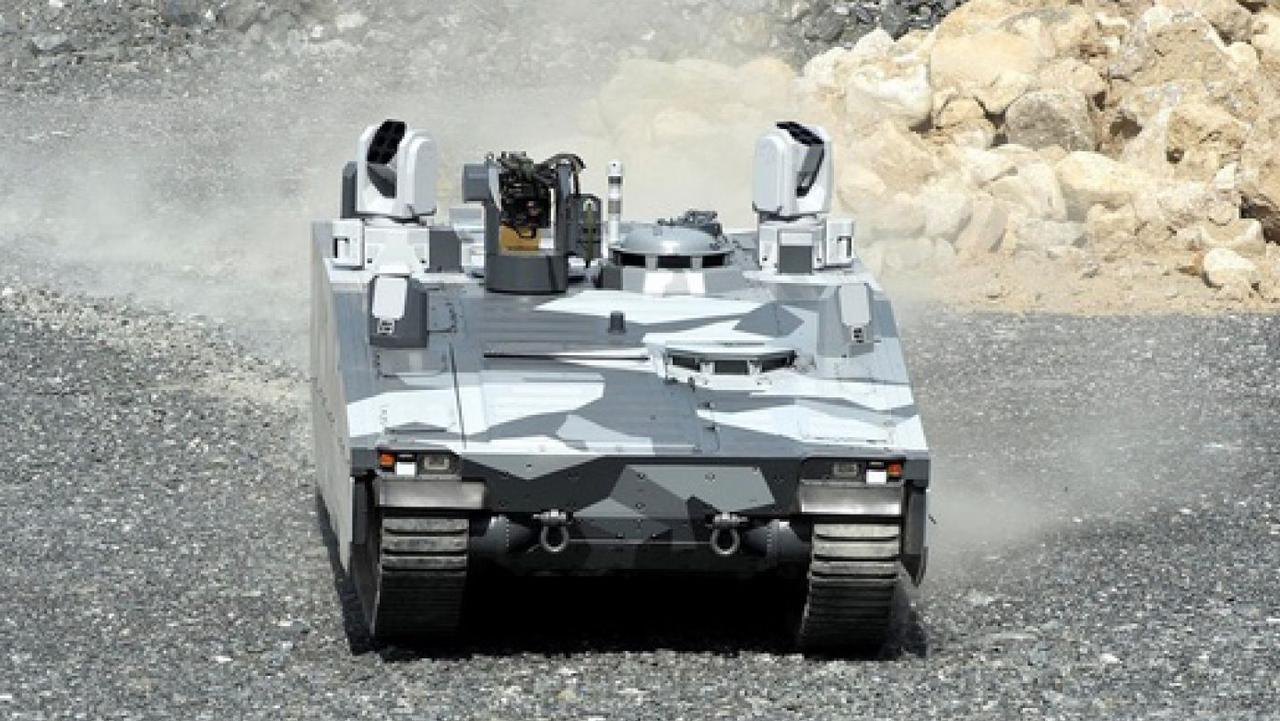
BAE’S BIG BOY WITH BIG SMARTS
At the annual Association of the US Army (AUSA) meeting in Washington DC this week, companies large and small from around the United States brought their latest and greatest tech to showcase.
One exciting contender was BAE Systems’ CV90 MkIV tank-like vehicle — a self-driving and self-fighting combat vehicle. And a potentially “invisible” one at that.
It has a “man-optional” combat mode and potentially allows the military to take humans out of the battle physically by operating the vehicle remotely.
ARMOUR
The tank features advanced Active Protection System and crew protection from heavy weaponry including IEDs, antitank mines and chemical, biological, radiological and nuclear (CBRN) attacks.
INVISIBILITY
BAE’s ADAPTIV program provides camouflage that renders the vehicle essentially “invisible” to enemy forces using “active multi-spectral cloaking”.
The cloaking can make the vehicle blend into the background so it seems to vanish. It can even mimic other objects making the tank look like rocks or a car in the eyes of the enemy if need be.
INDEPENDENT, AUTONOMOUS DEFENCE
The Defensive Aid Suite enables the armoured vehicle to classify targets, give warnings about threats and best manoeuvre guidance to others in the battle space. To prevent the vehicle from getting hit, it can also deploy countermeasures by itself.
REMOTE-CONTROLLED FIREPOWER
Human crews can operate from inside the vehicle, but it can also be controlled remotely — from anywhere in the world.
The CV90 tends to involve a two-man turret armed with Bushmaster cannons. This remote-controlled solution allows powerful weapons to be unleashed on the battlefield but reduces the risk to soldiers by taking them out of the turret.
The vehicle’s weaponry can be tailored to requirements and there’s quite a range of options — including weapons that can hit enemy aircraft and tanks.
Its Fire Control System can already autonomously set the type of ammunition most suitable to defeat these threats, as well as automatically calculating the angles for maximum accuracy. By itself, the vehicle can also choose whether the best approach will be airburst, impact or delayed detonation.
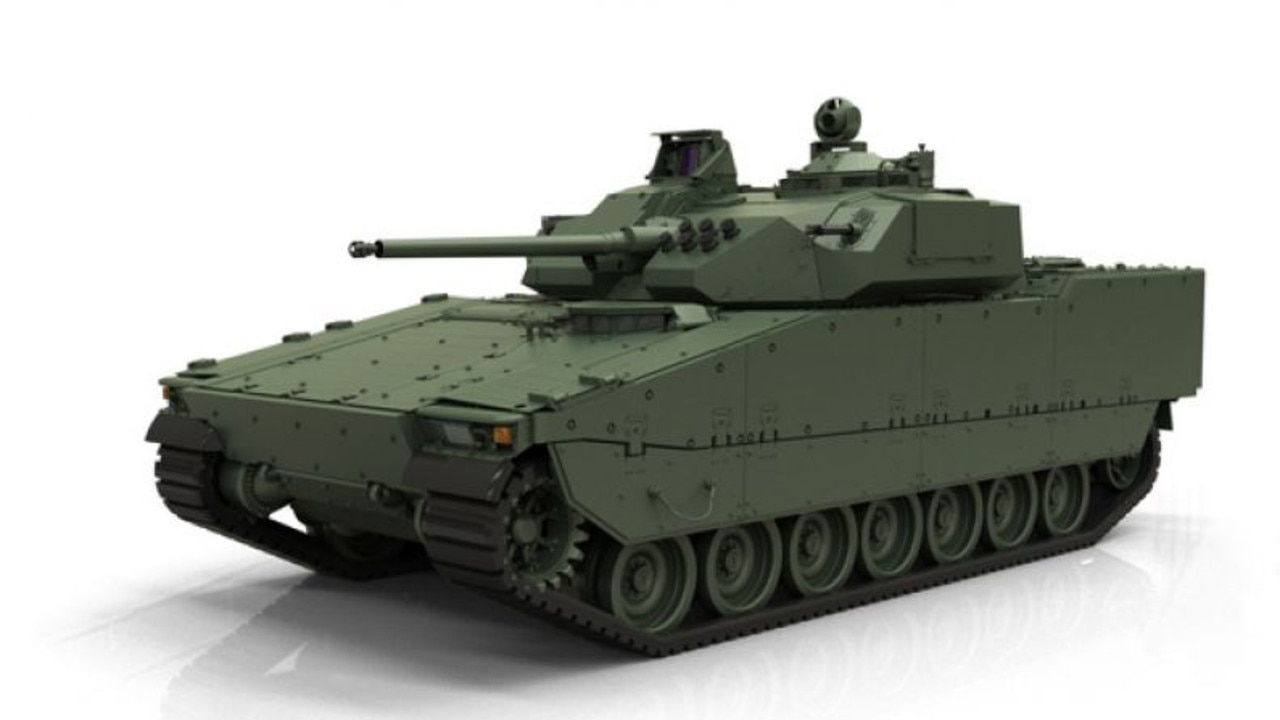
HOW COULD IT BE USED?
In the long term, combat vehicles may conduct missions entirely on their own; however it is more likely there will always be humans in the loop.
Soldiers could, for example, operate the unmanned CV90 MkIV combat vehicle while on-board another vehicle to amplify the force.
Or dismounted soldiers could control the unmanned vehicles, using them to perform reconnaissance in advance of troops.
Patrols, whether dismounted or in vehicles, could pilot the smart combat vehicles to travel in front of them so that in the event of an IED the unmanned vehicle would be hit instead of soldiers.
From inside a base, soldiers could also send the vehicles out on patrols.
And of course, battalions of robotic combat vehicles could eventually be deployed in battles.
This article was published on Fox News and reproduced with permission.


